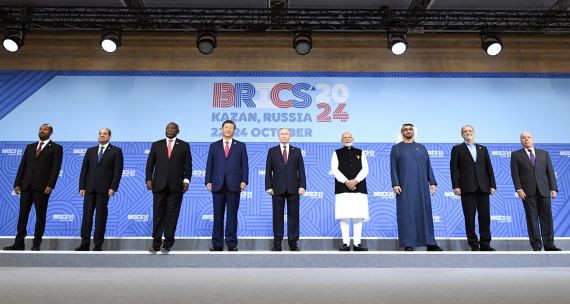Over the past decade we have witnessed the rise of Hollywood actors attaching themselves to social causes. In South Asia, however, politicization in the movie industry has risen to a whole other level. In late October, small groups of demonstrators gathered outside movie theaters throughout India to protest the release of a much-anticipated Bollywood hit, Ae Dil Hai Mushkil (The Heart is Complicated). These protests were organized by right-wing nationalist Hindu groups, such as the Maharashtra Navnirman Sena (MNS), and called for the deportation of Pakistani artists working in the Indian film industry because of the ongoing conflict in Kashmir. As a result of the public outcry, The Indian Motion Picture Producers Association (IMPPA) passed a resolution on October 14th officially banning Pakistani actors and technicians from working in India. In response, movie theaters in Pakistan have stopped screening all Indian Bollywood films. Ae Dill Hai Mushkil stars Pakistani actor Fawad Khan, who has become increasingly popular in India, but remains at the centre of the ongoing controversy because of his country of origin. What do these “film wars” tell us about Indo-Pakistani tensions, and how has the South Asian film industry been at the centre of similar regional disputes in the past?
Escalations in Kashmir, Industry Response
The recent escalations in Kashmir began this summer, when thousands of Kashmiris marched across the region to protest the Indian army’s escalating activities in the area. In response, the Indian army has opened fire on several mass protests, notably relying on the use of pellet guns to quell protests – leading to an epidemic of “dead eyes”in Kashmir. The initial call for the Pakistani actor ban came after attacks by a Pakistani faction of the Taliban on the military outpost of Uri, close to the Line of Control in Indian-administered Kashmir, on September 18th. This was the most violent attack on security forces in the region in two decades, and prompted India’s Union Home Minister Rajnath Singh to describe Pakistan as a “terrorist state.” Since this incident the Indian army has been launching “surgical strikes” on suspected Kashmiri militants inside Pakistan.
The response to the IMPPA ban amongst members of the film community in India has been mixed. Karan Johar, the director of Ae Dil Hai Mushkil, responded to critics by agreeing to not work with Pakistani talent in the future, and pledged 5 crore (around $1 million CDN) into the Indian Army’s Welfare Fund. Some actors, meanwhile, feel that regional politics should not restrict art, and have spoken out against the MNS’s activities to disrupt film screenings. They have also noted the rising pressures Indian Muslim actors are experiencing in the midst of this regional conflict. For example, Indian Muslim actor Nawazuddin Siddiqui dropped out of a Hindu theater festival earlier this month after being called out by similar right-wing Hindu organizations for performing in a play based on the Ramayana, a Hindu religious epic. This is not the first time Indian Muslim actors have been under scrutiny. Last year, prominent actor Shah Rukh Khan was deemed “anti-national” by a senior BJP leader for writing a Facebook post speaking out against inequalities in India, and received threats from right-wing Hindu groups that wanted him deported to Pakistan.
At the same time, other actors feel that given the dire political situation over Kashmir, showing solidarity with the Indian army is more important than debating a ban, and that the Indian government should have the final say. On the other hand, some have criticized Indian Prime Minister Modi for not speaking out against the actions of the IMPPA. For example, film director Anurag Kashyap argues that economic ties between the two countries have not come under public scrutiny throughout this conflict, and that artists are ultimately “paying the price.” This comment comes within the context of increased trade and economic partnership, demonstrated by PM Modi’s meeting with Pakistani Prime Minister Nawaz Sharif in a historic visit last December in Lahore. This move signified a positive change in relationships between the two countries.
Longstanding Drama
Given the cultural, linguistic and historical similarities between India and Pakistan, it makes sense that similar preferences in entertainment exist. While Pakistan is noted for its celebrated music scene, Bollywood movies and actors are household names throughout the sub-continent. A Hindi-dominated medium that still competes with regional cinema in India, Bollywood is the best-known and highest-grossing film industry in India, with a global scope attracting a wide range of talent from across the world. However, while Indo-Pakistani tensions over Kashmir may be popular fodder for Bollywood storylines, the drama over the films’ shared release has at the centre of geopolitical tensions for decades.
After the Partition in 1947, various attempts to stop cultural exchanges across the border have taken place. Indian films were officially banned in Pakistan after the 1965 Indo-Pakistani War. In the late 1970s, under military General Zia-ul-Haq, Pakistan experienced a wave of state-imposed Islamicization that attempted to entrench a split between Indian and Pakistani culture. Despite this, Pakistani audiences still found ways to access Indian films and cultural content throughout the years, and the 40-year-old “ban” on Bollywood films was lifted by former Pakistan President Pervez Musharraf in 2008. Over the years, Pakistani actors themselves have been well and widely received by general Indian audiences, and have collaborated with major players in the Bollywood film industry.
But as tensions between India and Pakistan continue to run high, the IMPPA has stated that the current ban will continue “until normalcy returns.” Continued public support for this cultural embargo may seem unreasonable, but perhaps the outcry and subsequent ban illustrates how people can find a voice for their frustrations over regional conflicts through popular media and film. So far, Ae Dil Hai Mushkil has been released worldwide and well received, including in Canada. Canadian Indian and Pakistani filmmakers have voiced their concerns over this ban, arguing that “cultural exchanges are a way to understand people across borders.” It is important to consider that as regional escalations mount, a shared appreciation of film might actually have the potential to bridge social gaps between these two countries.




